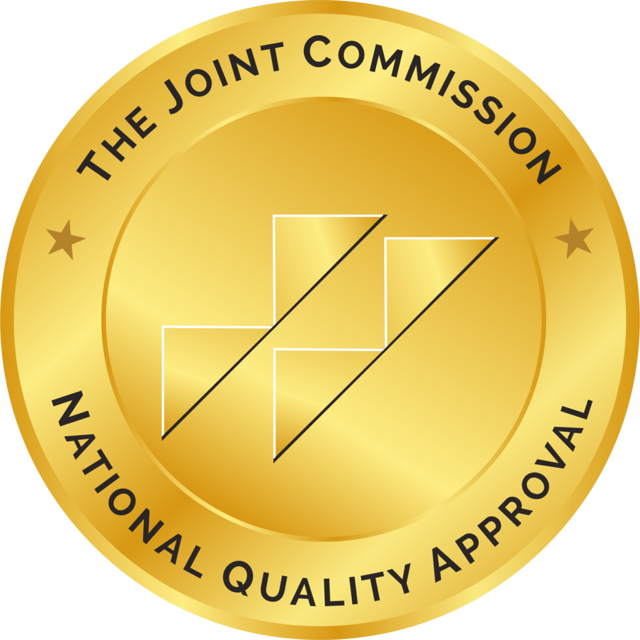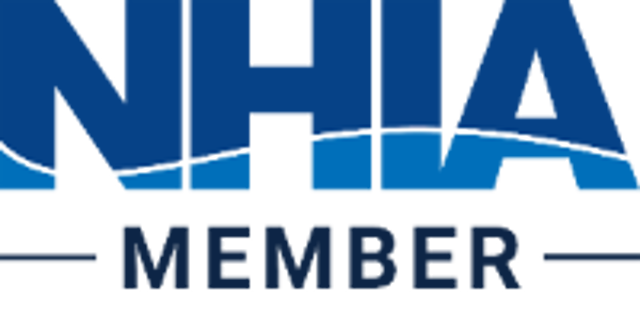

Specialty Care
Infusion treatments, whether at home, in a healthcare clinic or other non-hospital setting, require highly trained Specialty Care nursing and pharmacy support. Trust becomes essential for these higher-risk infusion therapies that require ongoing care.

Clinical Nutrition
Nutrition plays an essential role in sustaining quality of life for those who require care for complex conditions. Pentec Health provides personalized clinical nutrition solutions and superior community-based care.

Disease States
Managing the multifaceted needs for a variety of conditions requiring clinical nutrition and specialty care therapies, services and products. This includes patients with kidney disease, kidney failure, chronic, non-healing wounds, gastrointestinal conditions, rare metabolic disorders, chronic pain, muscle spasticity or cancer within or that has metastasized in the liver.

Continuing Education
By leveraging decades of clinical expertise, we are able to successfully demonstrate our industry leadership through webinars, speaker programs and research studies. We take pride in sharing valuable insights that enhance clinician education and practice.

Patient Resources
We are committed to supporting patients by empowering them with knowledge and resources needed to navigate their healthcare journey with confidence.

Pentec Health
Pentec Health is a national leader in clinical nutrition and specialty care integrating pharmacy services with clinical excellence to enhance the complex care journey.



Renal Nutrition IDPN/IPN
Pentec Health provides renal nutrition services based on the specific needs of each patient. These targeted forms of nutrition include Intradialytic Parenteral Nutrition (IDPN) and Intraperitoneal Parenteral Nutrition (IPN) therapies, which directly address the often-debilitating effects of long-term dialysis treatments.
Both IDPN and IPN are administered during a dialysis session. IDPN provides essential nutrients, including protein, carbohydrates and sometimes fats while IPN is the addition of protein to patients’ peritoneal dialysate. Both of these treatments ensure adequate nourishment for patients unable to meet their nutritional goals through oral intake.
With decades of experience in clinical nutrition for chronic kidney disease and end stage renal disease as well as a thorough understanding of the challenges and needs of protein malnourished hemodialysis patients, we are a trusted partner for nephrologists and dialysis clinics.
"We have been using your IDPN products at Pentec Health for the last 2 years and have been completely satisfied with the product and the customer service. You have been extremely helpful and professional in accomplishing our standards of service excellence to our patients in our facility."
Nancy T., Facility Administrator Large Dialysis Organization
Patient-Specific Nutrition Services
Every patient has distinctive nutritional needs and each IDPN formula is based on specific patient requirements.
Our experts strive to determine the optimal treatment dose so that protein malnourished patients receive the customized formulation best suited to their individual needs.
IDPN Formulas for Hemodialysis Patients
Pentec provides uniquely tailored, patient-specific IDPN formulations designed to replenish protein losses while minimizing fluid and dextrose content.
IPN for PD Patients
For patients on peritoneal dialysis (PD), Pentec provides IPN therapy that is designed to replenish protein losses with a form of protein that is used more quickly by the body than protein found in the foods we eat. IPN is instilled directly into the peritoneal cavity and is usually administered by the patient in their home.
Pentec Advantage™ Oral Nutrition Supplements (ONS) Program
Our complimentary 12-week Pentec Advantage ONS program is designed to support your patient’s nutrition at the onset of Pentec Health’s IDPN/IPN therapy.
This early nutrition intervention is key because it can help offset and minimize the impact of decreasing nutritional status, including:
- Increasing risk of mortality and morbidity as albumin decreases1-3
- Slowed response to nutrition therapy as patients become more debilitated4
In addition, the benefits of ONS for malnourished dialysis patients have been demonstrated in clinical analyses that show increased albumin and muscle mass, decreased fatigue and a lower risk of mortality5-7.
Clinical Team
Our clinical team of nutrition experts and pharmacists specializes in managing the complex nutritional needs of patients with end-stage renal disease (ESRD). That means you can count on Pentec for unparalleled expertise with IDPN and IPN.
We also support clinicians with a dedicated clinical case manager (CCM) who specializes in renal nutrition and nutrition support, working hand-in-hand with nephrologists and clinicians to optimize your patients’ response to IDPN and IPN therapies and enhance their quality of life.
An Extension of Your Team
The goal of Pentec’s clinical support team is to ensure that all patients meet their individualized nutritional goals while receiving IDPN or IPN therapy.
Our registered dietitians support this goal in a number of ways.
They serve as the primary clinical point person to onboard each patient, including confirming patient qualification criteria for therapy are met before starting IDPN or IPN therapy. The Pentec registered dietitian also serves as an extension of the dialysis clinic healthcare team, providing guidance and answering therapy-related questions for patient clinicians regarding existing patients on therapy as well as potential patients who may benefit from these therapies.
Our registered dietitians also monitor patient nutritional status, reviewing care outcomes quarterly and, as needed, suggesting therapy modifications or interventions throughout the course of treatment based on individual patient response to therapy. We use an albumin drop system to proactively track and trend albumin data. The system identifies patients who have had declines in their albumin levels, which then triggers a review of the patient’s status.
Pharmacy Support
We provide additional support to the clinic healthcare team through our pharmacy services including:
- Sterile compounding of patient specific IDPN and IPN formulas
- Resolution of any discrepancies found during the initial review of a patient’s medication profile, including dosing errors, duplications and interactions
- Patient outreach prior to starting care to review new therapies and answer questions on care management topics such as therapy goals, administration, storage and delivery
- Care plan development for all patients receiving IDPN and IPN, helping ensure patient progress toward their care goals
- Routine review and updates to medication profiles and care plans
- Coordination of care transitions, ensuring patient medication profiles are mailed as patients transition from hospital to home
Quality Assurance
Pentec Health maintains established protocols and quality control measures, which ensure the safe and accurate compounding of every sterile preparation dispensed to the patients entrusted to our care. Our pharmacy quality team performs routine monitoring and assessment of all facilities and personnel, which meets and exceeds the requirements of USP 800 guidelines for sterile and hazardous compounding. This confirms the sterility and superiority of the nutritional services dispensed by Pentec Health.
Still have questions? We have answers.
Patients
Providers
How long will I need to be on IDPN/IPN therapy?
You will receive IDPN/IPN therapy during each dialysis treatment. Your doctor and dietitian will monitor your progress closely through lab tests and other evaluations. When your protein returns to normal levels, they will determine when to discontinue therapy. You might take a “holiday” from the therapy to see if you can maintain your nutrition levels on your own. Each individual responds differently to therapy, so the length of time therapy is administered will vary from person to person.
How can IDPN/IPN therapy help me?
Dialysis patients have higher nutritional needs, especially protein. Some dialysis patients may not have a good appetite or find it difficult to tolerate or afford oral nutritional supplements. IDPN/IPN therapies can provide significant amounts of necessary protein without requiring you to drink or eat. Protein is essential for tissue repair and wound healing as well as protecting you against infections. Dialysis patients need approximately 50% more protein than people not receiving treatments.
What is IPN?
Intraperitoneal Nutrition (IPN) is a therapy that provides protein as part of your regular dialysis regimen. Your Pentec Health nurse will add protein to your cycler or CAPD bag by removing some of the dextrose. The IPN will also provide the dialysis that is prescribed. Your doctor and dietitian can determine if you could benefit from IPN therapy.
Are there any side effects to IPN?
Because Pentec Health’s IPN therapy is individualized and prepared safely based on your patient’s current PD regimen, he or she should not experience any side effects. If dehydration, or any other reported side effect does occur, a Renal Clinical Case Manager or Pharmacist can help determine the cause and treat it accordingly. Sometimes, dehydration can occur if the IPN is providing additional ultrafiltration.
How do I fill out an IPN prescription form?
A Renal Clinical Case Manager will ask the PD nurse to fill out the IPN prescription form once a covered benefit has been established for the therapy. The PD nurse will tell the RCCM what type, size and strength of bags the patient is currently using and together they will determine how to fit IPN in the current PD regimen.
Do you provide IPN in a cycler bag?
A Renal Clinical Case Manager will ask the PD nurse to fill out the IPN prescription form once a covered benefit has been established for the therapy. The PD nurse will tell the RCCM what type, size and strength of bags the patient is currently using and together they will determine how to fit IPN in the current PD regimen.
How much fluid should be calculated in the fluid removal goal to account for IDPN?
Fluid removal should be based on the astute judgment of the RN. However, there is free fluid in the IDPN that can be calculated in the fluid removal goal. For 2-in-1 IDPN, we suggest removing 80% of the total volume. For 3-in-1 IDPN, we suggest removing 75% of the total volume.
What is the source of dextrose used in the IDPN?
The dextrose used is derived from a corn base. If the patient has a true IgE allergy, then dextrose formulations are contraindicated.
What specific lab markers are reviewed quarterly by the Renal Clinical Case Manager?
Renal Clinical Case Managers review various lab markers. They primarily focus on, but are not limited to, albumin, nPCR, BUN, Kt/v, CO2, potassium, phosphorus and PTH. It is very important that they review treatment time and current weight quarterly as well. Anytime there is a major change with a patient, the RCCM should be notified.
How much dextrose is provided in the IDPN?
The amount of dextrose varies per patient based on his or her weight, dialysis runtime and whether or not weight gain is the goal. Patients who are not receiving a lipid formula will receive between 2–3gm/kg/min. For those who are receiving a lipid formula, they will receive 4–8mg/kg/min.
How fast can I expect to see an albumin level increase after receiving IDPN/IPN?
Each patient responds differently to the therapy so the response time will vary. Depending on the goal of therapy, whether it is an increase in albumin level, weight or both, we would typically like to see an increase in albumin level and/or weight after three months of therapy without a break in service.
How long will my patient need to be on IDPN/IPN therapy?
How long a patient needs to receive IDPN/IPN depends on the severity of the malnutrition and why the malnutrition has occurred. A Renal Clinical Case Manager (RCCM) will monitor your patient’s progress closely through lab tests and other evaluations. The patient’s lab results will be reviewed at least quarterly, and more frequently if the clinician alerts the RCCM of a change in nutritional status. Typically, the goal of the IDPN therapy is to see an albumin level increase to 4.0g/dL. Once the albumin level has reached this goal, we will determine when the therapy can be discontinued. The RCCM might suggest to hold the therapy or take a “holiday” from it to see if the patient can maintain nutritional levels on his or her own. Each individual responds differently to the therapy, so the length of time therapy is administered will vary from patient to patient.


Ready to refer a patient?
Experience the difference of our specialized renal nutrition services.
References:
1. Kalantar-Zadeh K, Kilpatrick RD, Kuwae N, et al. Revisiting mortality predictability of serum albumin in the dialysis population: time dependency, longitudinal changes and population-attributable fraction. Nephrol Dialy Transplant. 2005;20(9):1880-1888. doi: 10.1093/ndt/gfh941. Epub 2005 Jun 14.
2. Lowrie EG, Lew NL. Death risk in hemodialysis patients: the predictive value of commonly measure variables and an evaluation of death rate differences between facilities. Am J Kidney Dis. 1990;15(5):458-482. doi:10.1016/s0272-6386(12)70364-5
3. Herselman M, Esae N, Kruger JM, et al. Relationship between serum protein and mortality in adults on long-term dialysis: exhaustive review and meta-analysis. Nutrition 2010;26:10-32. doi: 10.1016/j.nut.2009.07.009.
4. Marsen TA, Beer J, Mann H. Intradialytic parenteral nutrition in maintenance hemodialysis patients suffering from protein-energy wasting. Results of a multicenter, open, prospective, randomized trial. Clin Nutr. 2017;36(1):107-117. doi.org/10.1016/j.clnu.2015.11.016.
5. Liu P, Ma F, Wang Q, He S. The effects of oral nutritional supplements in patients with maintenance dialysis therapy: A systematic review and meta-analysis of randomized clinical trials. PLOS ONE | https://doi.org/10.1371/journal.pone.0203706 September 13, 2018
6. Mah JY, Choy SW, Roberts MA, et al. Oral protein based supplements versus placebo or no treatment for people with chronic kidney disease requiring dialysis. Cochrane Database of Systematic Reviews 2020, Issue 5. Art. No.: CD012616. DOI: 10.1002/14651858.CD012616.pub2. Accessed 16 April 2021.
7. Ikizler TA, Burrowes JD, Byham-Gray LD, et al; KDOQI Nutrition in CKD Guideline Work Group. KDOQI clinical practice guideline for nutrition in CKD: 2020 update. Am J Kidney Dis. 2020;76(3) (suppl 1): S1-S107.

Proudly Quality Accredited
National Quality Approval
The Joint Commission

Accredited Practice Transition
Program With Distinction
American Nurses Credentialing Center

NHIA Provider Member
National Home Infusion Association Center
By using this website you accept our privacy policy. Choose the browser data you consent to allow:

